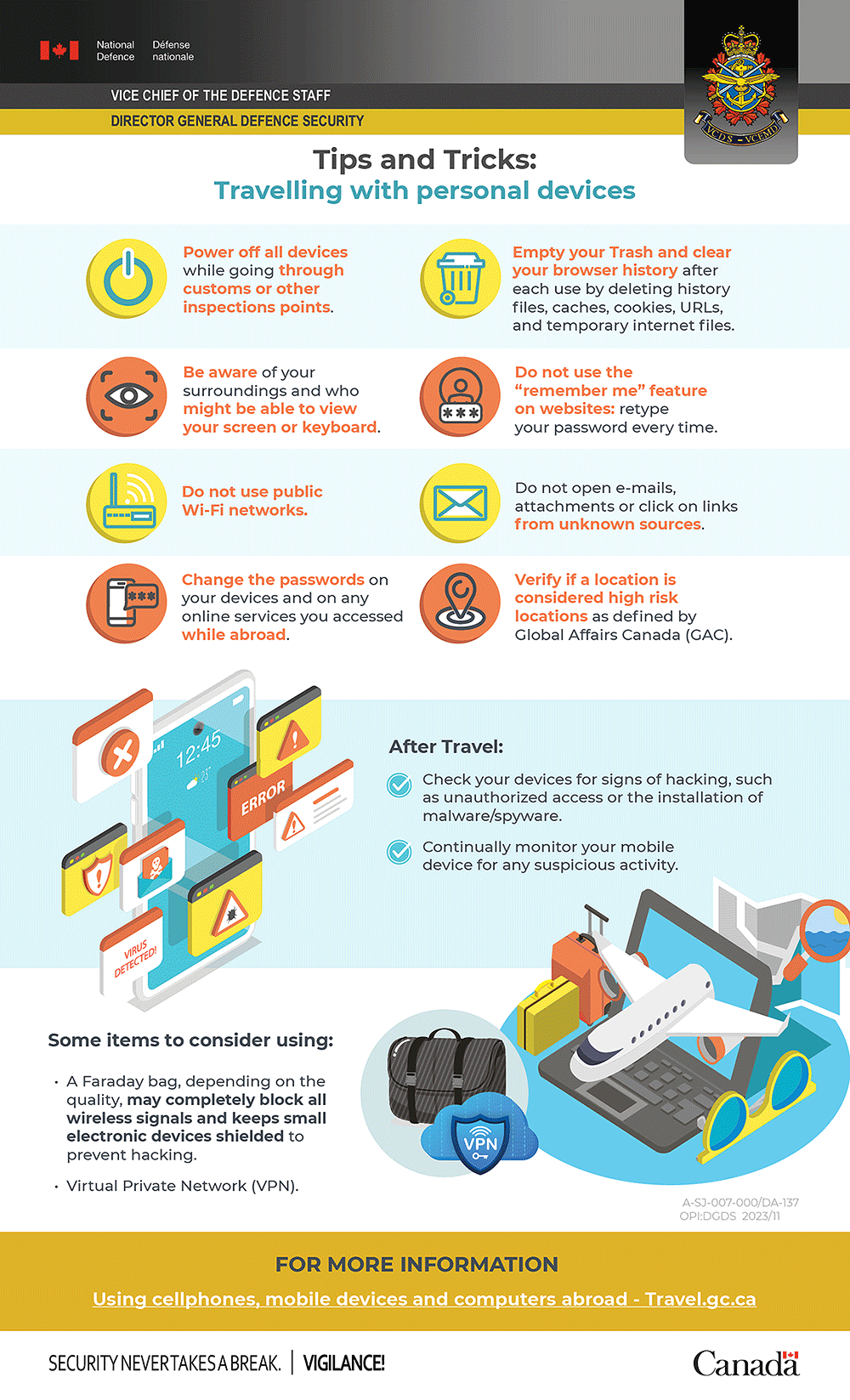Tips and Tricks: Travelling with personal devices
June 10, 2024 - Defence Stories

In today's hyper-connected world traveling without personal devices for many is unimaginable. Smartphones, laptops, and tablets are essential for navigation, communication, entertainment and even work. However, this convenience creates risks such as cyber-attacks and theft. Ensuring your devices' safety while traveling is crucial to protect your sensitive information. The motion graphic below offers practical tips to safeguard your devices and data, helping you travel smart and secure.
Visit the toolkit (accessible on the Defence network).
Video / June 10, 2024
Transcript
Hey Charlie! Heading on vacation? I've got some tips to make your journey safer with your electronic devices!
It's recommended to turn off your devices when going through customs or other inspection points. Why? It can help protect your personal information.
I know that it seems easier to just use the “remember me” feature on websites, but yes it’s better to enter y our password each time for optimal security. I know, I know, we must remember our multiple passwords.
Charlie... Is it really a good idea to click on that? When using public Wi-Fi, stick to trusted networks only. Also, don’t do sensitive activities like banking… fraud knows no borders!
Psst, Charlie, behind you... Always be aware of your surroundings. Make sure no one can see your screen or keyboard when entering sensitive information.
And it doesn't end there! Upon your return, it's important to carefully check your devices for any signs of hacking. Also, it's a good idea to change the passwords for your devices and all online services you accessed while abroad.
By following these tips, you can travel safely with your devices. Bon voyage!

Infographic – Text version
Tips and Tricks: Travelling with personal devices
- Power off all devices while going through customs or other inspections points.
- Empty your Trash and clear your browser history after each use by deleting history files, caches, cookies, URLs, and temporary internet files.
- Be aware of your surroundings and who might be able to view your screen or keyboard.
- Do not use the “remember me” feature on websites: retype your password every time.
- Do not use public Wi-Fi networks.
- Do not open e-mails, attachments or click on links from unknown sources.
- Change the passwords on your devices and on any online services you accessed while abroad.
- Verify if a location is considered high risk locations as defined by Global Affairs Canada (GAC).
After Travel:
- Check your devices for signs of hacking, such as unauthorized access or the installation of malware/spyware.
- Continually monitor your mobile device for any suspicious activity
Some items to consider using:
- A Faraday bag, depending on the quality, may completely block all wireless signals and keeps small electronic devices shielded to prevent hacking.
- Virtual Private Network (VPN).
For more Information:
Using cellphones, mobile devices and computers abroad - Travel.gc.ca
